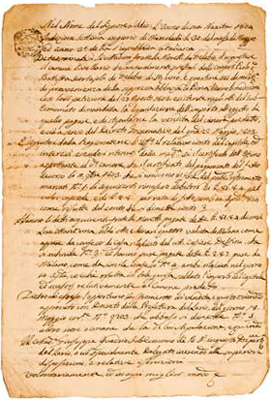 Institutions across the world are digitizing centuries-old manuscripts in the hope to preserve them and make them available for historians and researchers. Digitization is transforming ways in which people discover information and conduct research as computerized documents can be easily navigated and accessed.
Institutions across the world are digitizing centuries-old manuscripts in the hope to preserve them and make them available for historians and researchers. Digitization is transforming ways in which people discover information and conduct research as computerized documents can be easily navigated and accessed.
Old documents that need to be preserved may include paper manuscripts, books, correspondence, diaries, documents in cloth, and even palm leaf documents. These fragile collections are scanned using special scanners and are converted to searchable files with the help of technology like OCR. Advancements in hardware and software technologies have made the preservation of age-old documents easier. Let’s look at some recent large-scale manuscript scanning and digitization initiatives which have caught global attention.
Digitization of Historic Manuscripts at Vatican Apostolic Library
According to a recent report, the Vatican has been working on a project to digitize more than 80,000 important and early manuscripts and books. These include Pre-Columbian manuscripts, early Greek and Latin texts, Islamic manuscripts, and even Japanese paintings. People can now view digital reproductions of more than 4,000 ancient manuscripts at the Library’s website and the aim is to make around 15,000 manuscripts available online by 2018.
Darwin Manuscripts Project at the American Museum of Natural History (AMNH)
The digitization of Charles Darwin’s scientific archive allows you to trace the steps that led the 19th-century naturalist to devise his evolutionary theory. It is reported that the Darwin Manuscripts Project at the American Museum of Natural History (AMNH) is almost half complete and progressing towards its goal of digitizing 30,000 documents. You can now access around 12,000 documents across 25 years of Darwin’s work.
Digitization Project of MSU Oriental Institute, India
MS University’s (MSU) Oriental Institute in Vadodara, Gujarat, India recently started a massive project to digitize thousands of manuscripts. It is reported that the Institute has a rich collection of around 30,218 rare and valuable manuscripts, including some from hand-made paper, palm, and clothes, and on a wide range of subjects in different scripts and languages. The aim of this ambitious project, initiated in collaboration with the National Manuscripts Mission (NMM), Government of India, is to make these valuable collections available to public through the website of the University.
Advantages of Digitizing Historic Manuscripts
- Enhances public accessibility
- Allows preservation of original documents, which may be subject to wear and tear
- Facilitates access to materials that can no longer be accessed in their original format
- Offers users a better understanding on the authenticity and archival context of age-old records
- Reduces physical storage requirements
- Helps further research
Archiving fragile historic manuscripts is a daunting task that should be done with great care. The use of the right technologies and methods is necessary to ensure high-quality representations of the content from deteriorating and damaged documents.



